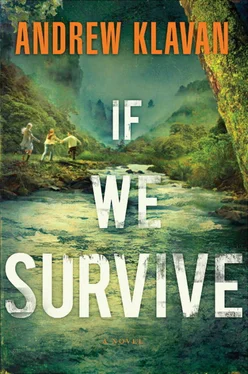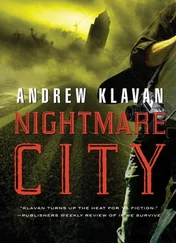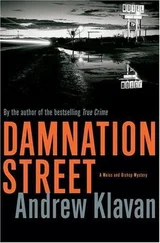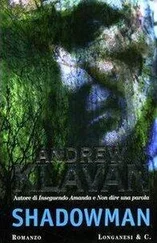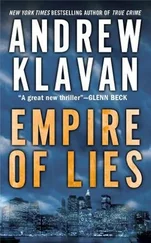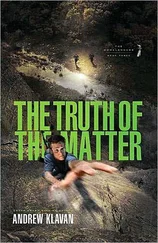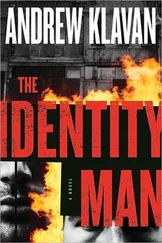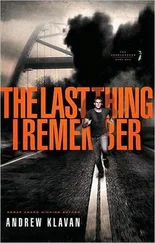I gagged as I watched it die. I had to fight the urge to throw up. I guess my reaction must have looked pretty amusing because Nicki said, “Ew, gross!” and then covered her mouth to hide a laugh. Even Meredith, the tears still on her cheeks, smiled quietly.
“Ha ha,” I said as I tried to recover a little dignity. “Laugh riot.”
Palmer gave one of his wry, sardonic smiles. “Those things’ll kill ya, kid,” he drawled. Then, all business again, he tilted his head toward the ravine wall. “Vamanos,” he said.
We made our way back to the trail and followed Palmer along its narrow, winding way. He walked ahead of us at a quick, steady clip.
Thestorm was passing now. The thundershowers always came on hard and fast in the afternoon and dwindled away again just as suddenly. As we walked, we caught glimpses of the sky through the dense leaves above us. And as the black clouds dissipated, we saw there was still some light left. The sky behind the storm was gray-blue, and the sun, low in the west, came to us through the forest in slanting rays.
We trudged on. As the storm faded, and as the noise of the storm faded with it, the jungle seemed to come alive with new sounds—a lot of them. Birds made weirdly human whistles and laughing calls to one another—and sometimes they burst out of the leaves with a fluttering explosion as we walked by. A rattling commotion made me raise my eyes—and I saw monkeys climbing among the lacework of vines and branches over our heads. Kind of an eerie sight— like furry little human beings crawling along over us. And sometimes they let out a scream— wa-a-a-a-a-a-a-a! —that sounded like something from a totally other planet.
But I didn’t look up at them for too long. I had to keep my eyes on the ground. I had to keep watching for spiders and snakes. Not to mention leopards and crocodiles. Or maybe I’ve already mentioned them.
I became aware of something else too. I was hungry. As in: way hungry. And crazy thirsty. Palmer had told us not to drink from the ravine or it would make us sick. I had caught some rain in my mouth awhile back, but other than that I don’t think I’d had anything to eat or drink since Mendoza had walked into the cantina. I hadn’t noticed it before, what with all the danger and excitement, but now, with every step, I was conscious of the rumbling pangs in my belly and of the dry crust coating the inside of my mouth. Back home, when it was getting to be dinnertime, sometimes I would say to my mom, “I’m starving,” or sometimes, coming indoors after some touch football game or something I might say, “I’m dying of thirst.” But I had never been hungry like this before. I had never been this thirsty ever. Yet, somehow, I had to keep going on—and because I had to, I did.
The sun sank lower. The air grew somewhat cooler, less dense. The last raindrops dripped down off the leaves and fell on us. My clothes were still damp and uncomfortable, squishing and chafing my skin with every step, but it was better than getting rained on. And anyway, I was too hungry to care very much.
We walked a long time. The jungle began to grow dark again—not as dark yet as during the storm because the low sun still cut through the foliage and sent its beams in to us, but the trees around us were beginning to sink into shadow and the sky, when we could see it, was less blue, more gray. I wasn’t happy about this. Not at all. I wasn’t happy about the idea of walking through this place in the nighttime, unable to see where I was stepping—or what I might be stepping on—unable to see what might be following us, what might be watching us hungrily through the darkness… As the dark grew deeper, my fear started to grow worse and worse. I watched the others ahead of me, marching on. I wondered if they were as scared as I was—or was I just a coward?
I remembered once in English class we read some of the works of Ernest Hemingway. I remembered Hemingway said that cowardice was “a lack of ability to suspend the functioning of the imagination.” To be honest, I didn’t really understand that when I read it. But I sort of got it now. The more I imagined the bad things that might happen to us out here, the more scared I got; and the more scared I got, the more nervous and weak I felt. If something bad did happen, well, I was beginning to think I wouldn’t have the courage to deal with it, that I might run away and leave my friends to face it alone. That was no good. If I was going to stay strong, I had to somehow stop thinking about it all—about the snakes and spiders and leopards and crocodiles and so on. I had to find some way to force it all out of my mind. “Suspend the functioning of the imagination.” Easy to say, Mr. Hemingway. Not so easy to do.
A monkey chattered and screamed. I tensed and gasped so loudly that Meredith, who was just ahead of me, actually glanced back to see if I was okay. I had clutched my machine gun and was pointing it in the direction of the noise as if I were going to blow some monkey away or something. I felt like an idiot. I had to find a way to calm down.
I thought of something. I thought of Pastor Ron. Not the way I’d seen him last, his body lying in the alley after the rebels had murdered him. I thought of the way he used to be. Back in our church. I thought of him the way he was when he would preach sometimes when Pastor Francis took a Sunday off. I could almost see him in my mind’s eye, standing above us up in the pulpit. I could picture him so clearly, in fact, that I could almost hear his voice, as if he were walking along beside me right that second. I remembered once he said to us:
“Don’t worry about anything—pray about everything instead.”
That was a quote from the Bible, I knew, though I didn’t know what book or anything. But it sounded like good advice. Practical too—you know? I mean, it wasn’t just like saying, “Don’t worry.” It was something you could actually do with your mind instead of worrying. A way you could “suspend the functioning of the imagination,” like Hemingway said.
So I tried it out as we marched on through the darkening jungle. I focused on praying. I prayed that everything would be okay. Not just for me but for my parents too. They were probably getting pretty worried by now as news of the revolution in Costa Verdes reached them. All of our parents were probably getting worried. It was hard to imagine Palmer having parents, but he must have had them at some point, and even they were probably getting worried. So I prayed for all of our parents.
It worked. It distracted me, anyway. It made me stop thinking about the snakes and whatnot. And it made me feel that we hadn’t lost Pastor Ron—not totally. It made me feel that he was still right there with us, at least in some way. So I forgot about all my fears for a while. And before I knew it, Palmer was lifting his hand at the front of the line and we were all slowing to a stop.
I came up alongside Palmer and the others. And I looked past them at an absolutely amazing sight.
We were standing at the edge of a clearing. It wasn’t a full clearing like the airstrip, not flat and grassy like that. There were still some trees here and there and the grass and bushes were overgrown. But it was obvious that someone had cut away part of the forest here not so long ago. Without the thick jungle roof, the space was a little brighter. The sun was just visible through the western trees and the last of its rays were turning pale and dying. A sort of shroud of darkness seemed to be slowly settling down over the open field.
And in the center of this clearing, there was, so help me, a building. A stone pyramid of some sort. An ancient temple, I guess.
Читать дальше
